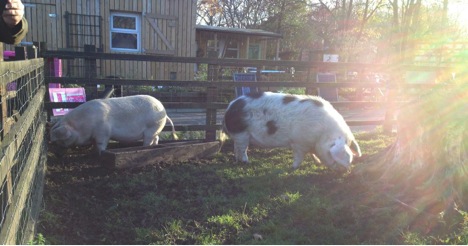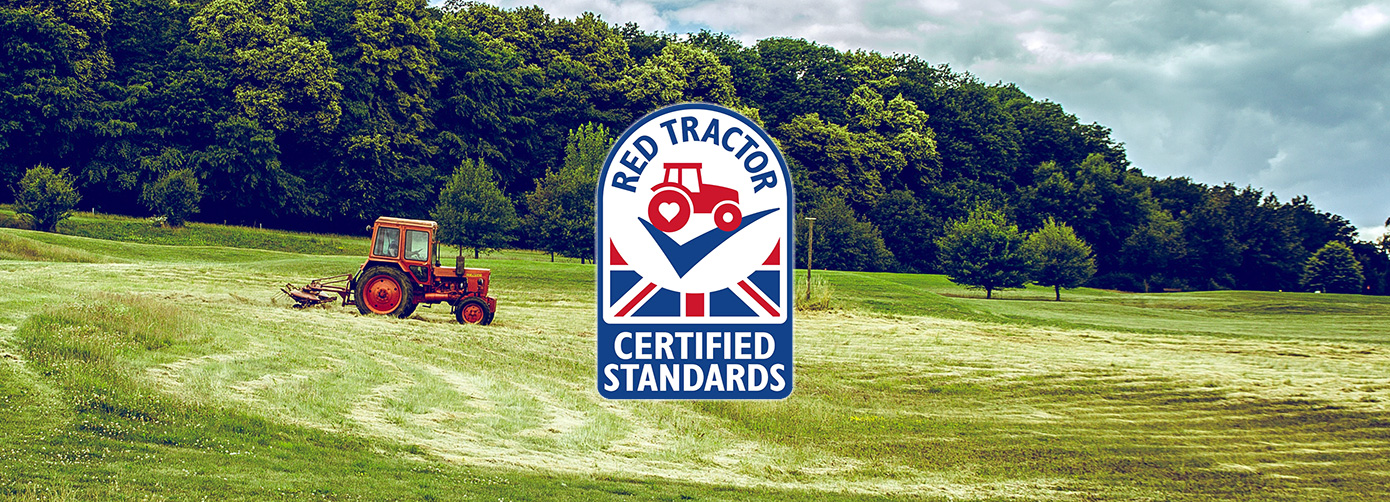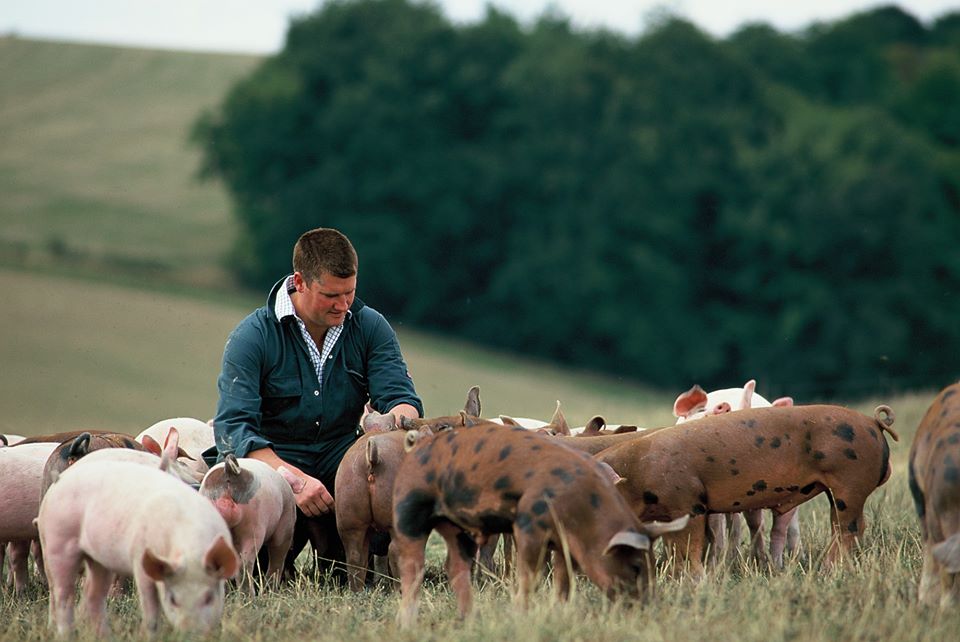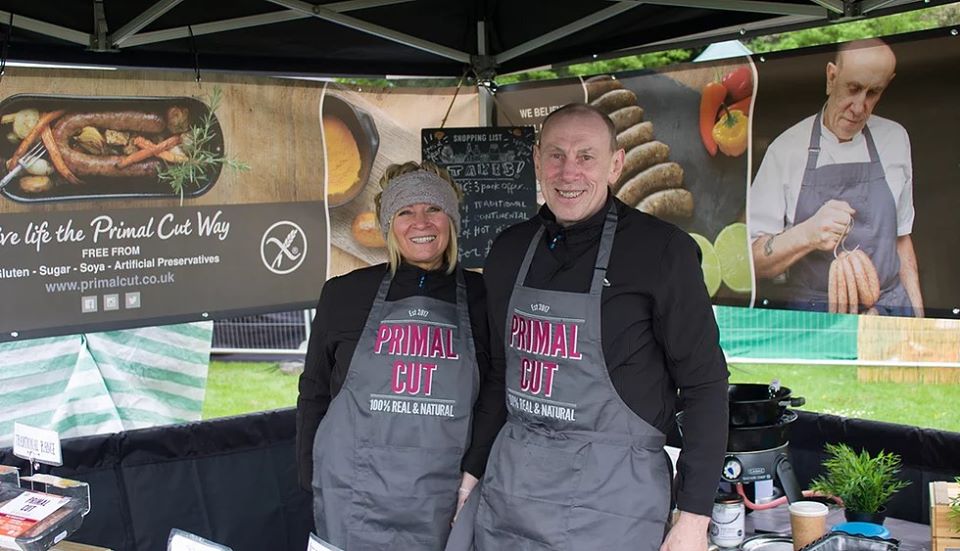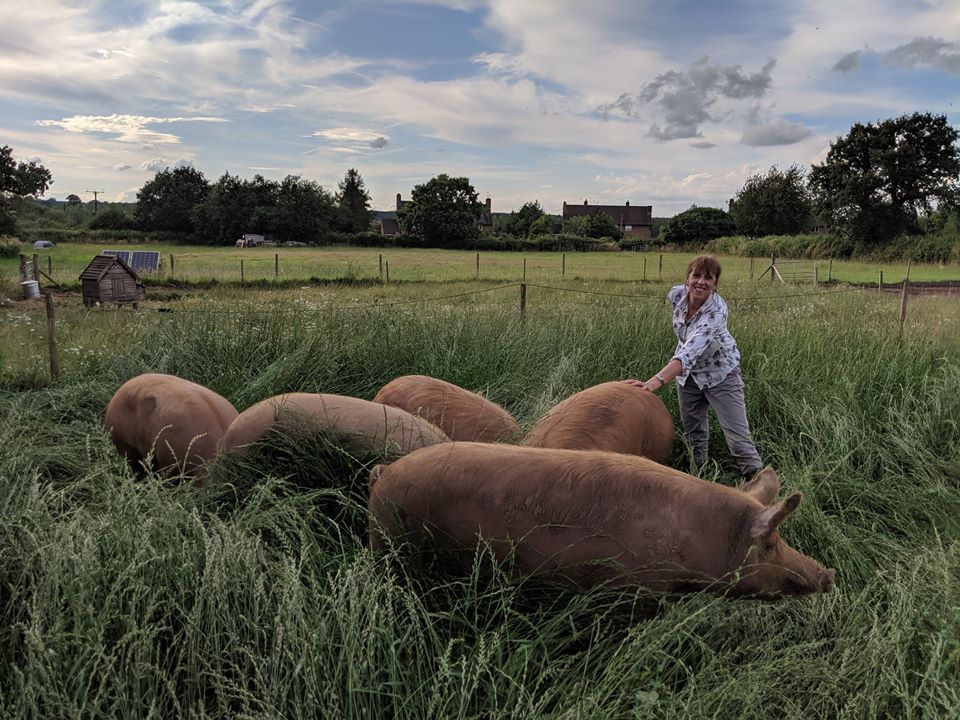Last Saturday we wrapped up warm, gathered our piggy materials and headed off to Stepney City Farm in East London for PigFest 2014.
PigFest was organised as a celebration of the Berkshire pork reared on Stepney City Farm, as well as raising awareness of high welfare meat, factory farming, sustainable pig production methods and an opportunity to support small scale farmers through the farmers market (held weekly).
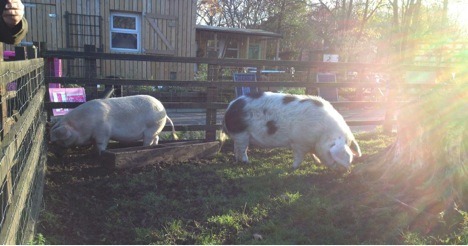
PigFest collaborated with The Pig Idea, a campaign to encourage the responsible use of food waste as pig feed. The farm’s Berkshire pigs were fattened solely on legally permissible food waste meeting the strict requirements from local food establishments. The idea is simple, instead of throwing away perfectly good vegetables, fruit and dairy products (not deemed fit for human consumption) or even paying to dispose of it, it’s fed to the local pigs. In return, they reward the community with delicious, healthy and happy pork, served either in the cafe alongside vegetables or available to purchase and take home to enjoy. Nothing is wasted.
We set up our stall in front of the farmers market, with so many delights on offer; artisan breads, free-range sausages, olives, cheeses, seasonal vegetables and pottery to name a few. We were also lucky to be close by to the resident Gloucester Old Spot gilts and some very excitable Tamworth weaners. All of which enjoyed the days attention through various edible treats and belly rubs.
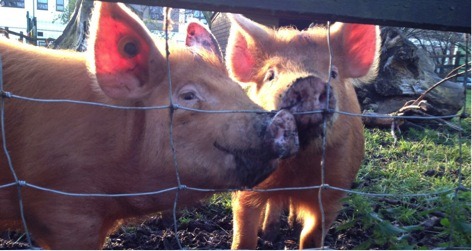
We met many interesting people throughout the day, raising very important issues such as how to buy higher-welfare pet food and insights into the the 1980’s intensive British pig industry from a former pig farmer. He recollected the poor conditions pigs endured, being housed on bare concrete in crates their whole lives. He also noted the frequent use of antibiotics, where almost anyone and everyone was administering them.
The concepts demonstrated at Stepney are, far from large scale farms today, reminiscent of how we all remember our parents and grandparents keeping pigs – the traditional and sustainable way. Feeding safe household waste to fatten them whilst they kindly rooted our soils ready for planting the seasons vegetables. Their lives were then celebrated through feeding appreciative friends and family. Unfortunately, due to consumer ignorance and the large uptake of cheap factory farmed meat, pigs are fed on mainly grain-based diets, in particular soya imported from rich biodiverse areas like the Amazon rainforest and so not many of these sustainable systems remain. Instead, we throw our food waste away, more often than not into landfill, creating more problems.
Due to concerns regarding disease, feeding any catering waste is banned in the EU. This law came into force in 2001 when the UK saw an outbreak of Foot and Mouth disease, apparently due to feeding meat contaminated with the Foot and Mouth disease virus.[1] This resulted in the slaughter of over 6 million farm animals in efforts to control the disease. [2]
Stepney City Farm has shown that is possible to rear pigs sustainably on a diverse diet of food waste, providing them with nutrition and avoiding use of grain. By adhering to current food waste laws, a strictly controlled feeding regime could be implemented that would reduce waste and fatten pigs, whilst minimising threats of disease at all times.
We certainly felt inspired by the diverse farming underway at Stepney, not only do they rear pigs but they keep a few Jacob sheep, two donkeys, bees, many rabbits, ferrets, guinea pigs, ducks and finally, lots of chickens roaming free. Brightly painted fences, recycled from old pallets separate the various bustling vegetable plots – it is clear nothing goes to waste.
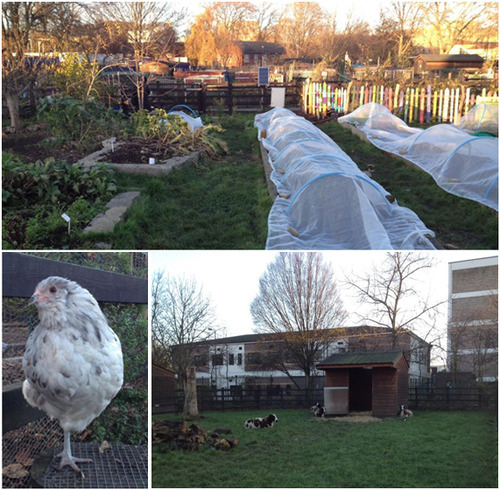
Thank you to everyone who came along to PigFest, we had a brilliant day! We hope you all enjoyed our mini film screenings in the Gallery, featuring our Pig Pledge film, Pig Business (10 minute version) and Pig Business in Chile whilst perched on the straw bales. A final thank you to so many of you who took the Pig Pledge; to either go meat free or only eat real meat from farms, not animal factories. This truly was a day celebrating high welfare pork, sustainable farming methods and community spirit!
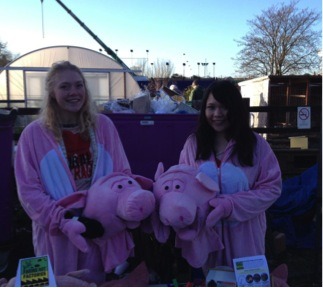
[1] http://archive.defra.gov.uk/foodfarm/farmanimal/diseases/atoz/fmd/documents/fmdorigins1.pdf
[2] http://archive.defra.gov.uk/foodfarm/farmanimal/diseases/atoz/fmd/documents/environmental_report.pdf
Share This Article
Related ArticlesView All
Ching He Huang says #TurnYourNoseUp at Factory Farming
TV chef and food writer Ching He Huang MBE, says #TurnYourNoseUp at factory farming. Her food ethos is to use… Read More
Is Red Tractor High Welfare?
When it comes to buying pork, the Red Tractor label does not offer any assurance that the pigs were raised… Read More
#SaveBritishFarming London March
Yesterday, farmers and activists gathered in London to protest the real prospect of sub-standard imports from the US that would… Read More
Farm Case Study 13: Farmer’s Choice, Hampshire
Jason from Farmer’s Choice Free Range in the South Downs says COVID-19 caused an increased demand that was driven both… Read More
Producer Case Study 12: Primal Cut
Primal Cut are artisan producers that follow Slow Food principles. They promote local food & traditional cooking with free range,… Read More
Farm Case Study 11: Good Life Meat, Staffordshire
Helen Dale & her husband keep rare traditional British breeds of pig at The Good Life Meat Company, which are… Read More
